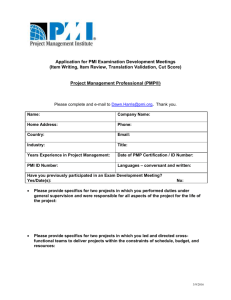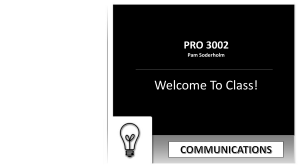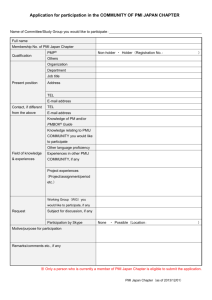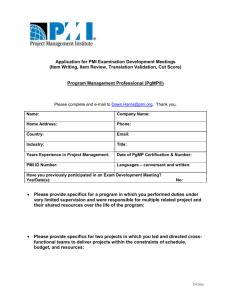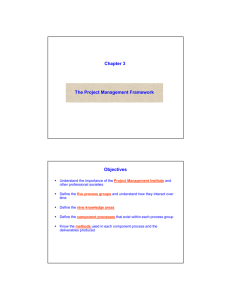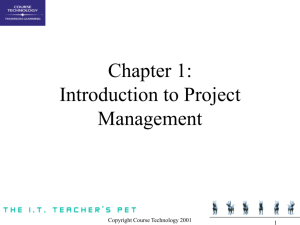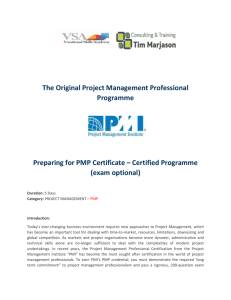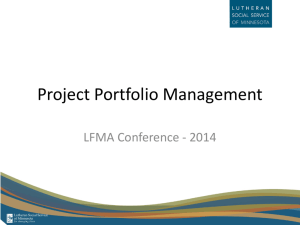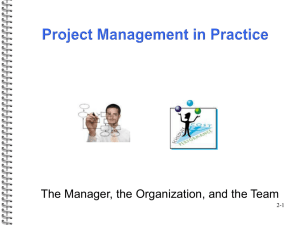PMI and the Project Manager
advertisement
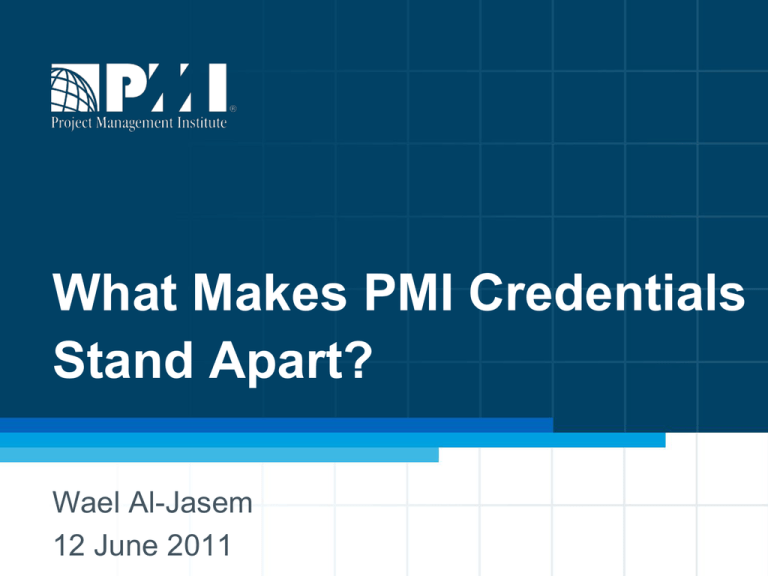
What Makes PMI Credentials Stand Apart? Wael Al-Jasem 12 June 2011 Agenda • Importance of professional PM certifications • Introduction to PMI’s Certification Program • What sets PMI’s credentials apart? • What are the benefits of PMI credentials? Why PM Certification? • Complex project environment • Expensive • Diversified teams • Technology development • Evolution of the body of knowledge We want competent leaders & managers! Introduction to PMI’s Certification Program • PMI offers five certifications – Certified Associate in Project Management (CAPM)® – Project Management Professional (PMP)® – PMI Scheduling Professional (PMI-SP)® – PMI Risk Management Professional (PMI-RMP)® – Program Management Professional (PgMP)® PMI’s Certification Stats PMI’s AGC Certification Stats – Membership = 4,399 (6.62% growth) CAPM PgMP RMP SP PMP Kuwait 12 3 17 5 435 Bahrain 12 2 1 3 332 Qatar 8 4 7 13 688 Saudi 46 7 36 10 2015 UAE 85 7 67 26 3384 Total 163 23 128 57 6854 Why choose a PMI certification? • Flexible and transferable • Keeps you up-to-date • Encourage professional growth • Help practitioners develop their careers • Renowned worldwide What sets PMI’s credentials apart? Internationally Recognized, Globally Accredited • Launched in 1984 – PMP: first designed specifically to credential project managers – PMP is also accredited under ISO 17024 – It is also accredited by ANSI • 400,000+ credential holders…and growing – Credential holders in 170+ countries • Reflects project management practice established through global studies By project managers, for project managers • Thousands of project management practitioners volunteer every year – Create examination questions – Rigorously review these questions – Provide strategic oversight to certification program – Drive change initiatives • Volunteers represent PMI’s diverse population Transferable between methodologies, standards, or industries • PMI Certifications reflect project management best practices – Do not represent any single methodology, standard, or industry • Transferable around the globe • Consistently examined to reflect current practice – Maintained through gaining project management education and working experience. – Ensures that PMI’s certifications never become obsolete – and our active credential holders keep up with their project management competence. Valid and reliable ways to assess competence • PMI certification measure more than knowledge – Education for Eligibility – Experience – Examination (scenario-based examination) – Ethics – Education for Certification Maintenance Summary • Remember what sets PMI credentials apart: An internationally recognized, accredited program By project managers, for project managers Transferable between methodologies, standards, or industries Valid and reliable ways to assess competence Now that you know – why should you obtain a PMI certification? • Credentialed project managers are tied to improved project performance • 80% of high-performing projects use a credentialed project manager – Most commonly held PM certification was the PMP PricewaterhouseCoopers Insights and Trends: Current Programme and Project Management Practices (2007) Benefits of certification Higher maturity organizations have higher certification rates PricewaterhouseCoopers Insights and Trends: Current Programme and Project Management Practices (2007) Benefits of certification Higher maturity organizations have better project performance 90% 80% 70% 60% 50% 40% 30% 20% 10% 0% 82% 75% 58% 43% 80% 75% 73% 64% 60% 70% 59% 51% 48% 48% 36% On time On budget Scope creep High Meduim Met Increase in goals/intent projects that meet goals Low Benefits of certification • Certification indicates a baseline level of competency, education, and experience to an employer • Certification indicates a dedication to the profession, when employers are focusing on acquisition/retention • Certification allows companies to recognize specialized practitioners Thank you • For questions, please contact: – PMI AGC Kuwait at info@pmiagckw.org or – E-mail PMI directly at customercare@pmi.org
